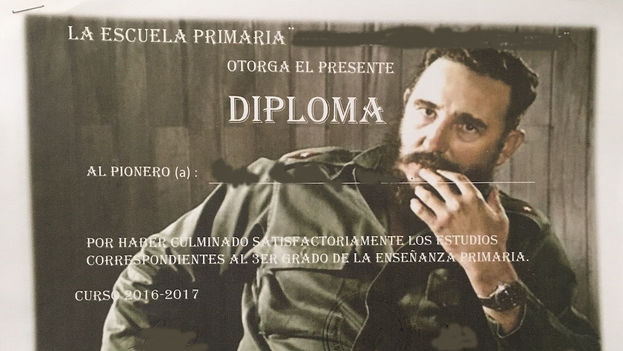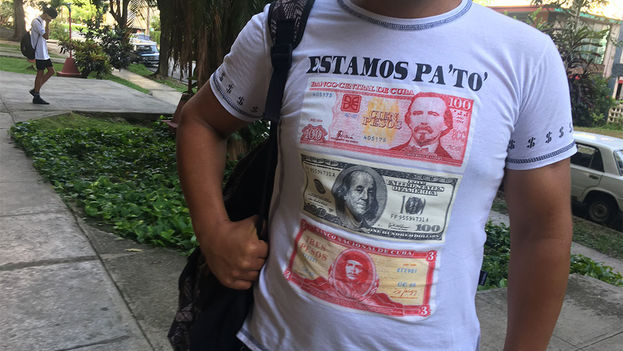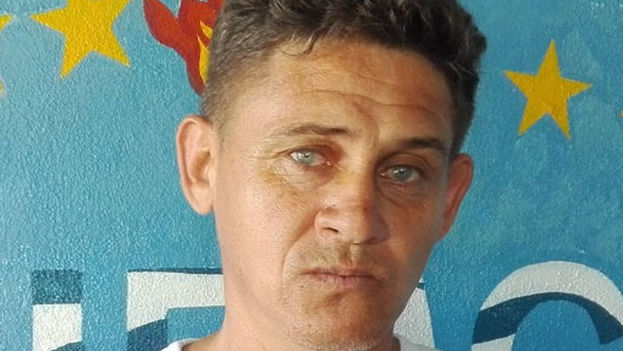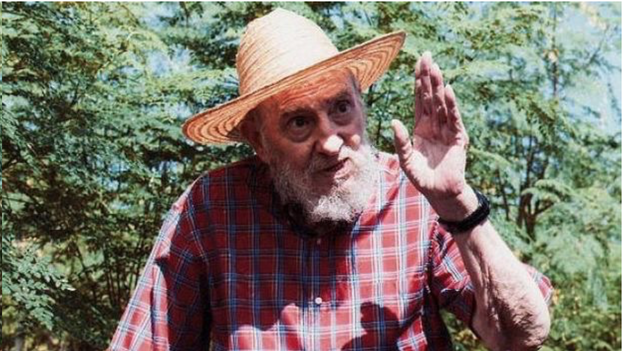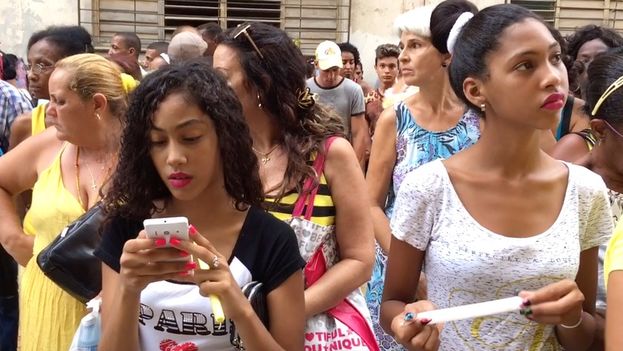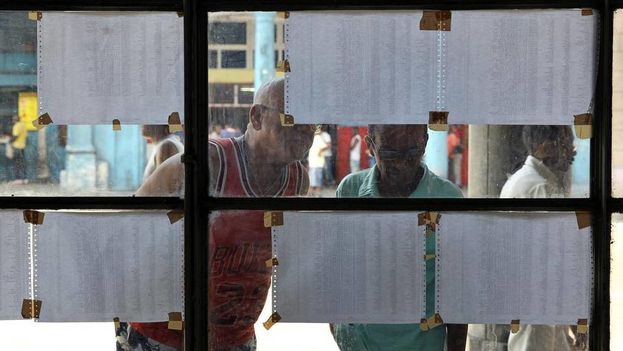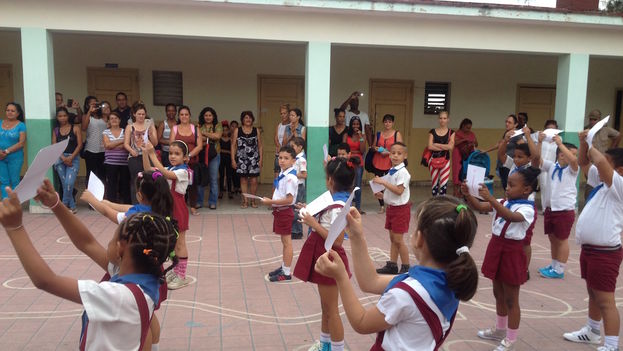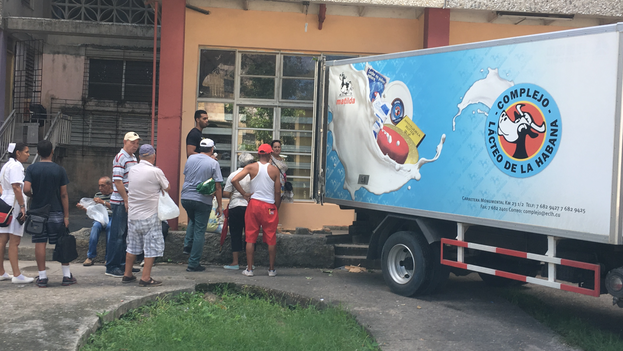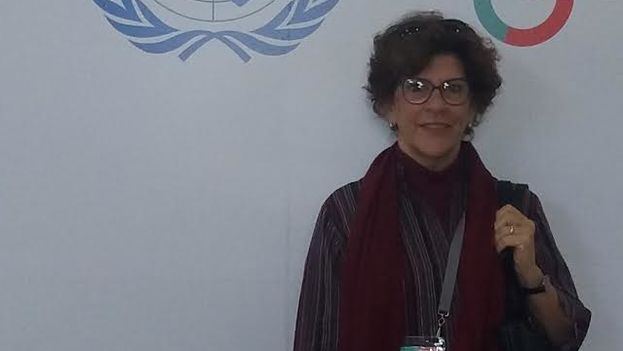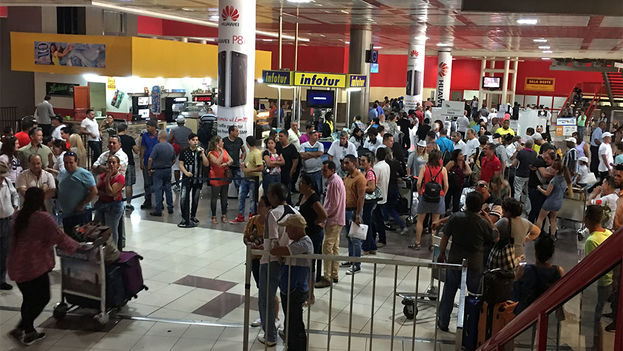
![]() 14ymedio, Zunilda Mata, Havana, 4 July 2017 — The passengers leave the plane and make their way around the buckets catching the leaks from the roof. They still have a long wait in at baggage claim and have to suffer under the air conditioning that hardly alleviates the heat. The José Martí International Airport in Havana is stumbling through the tourist boom that has brought a volume of passengers its services and infrastructure find difficult to serve.
14ymedio, Zunilda Mata, Havana, 4 July 2017 — The passengers leave the plane and make their way around the buckets catching the leaks from the roof. They still have a long wait in at baggage claim and have to suffer under the air conditioning that hardly alleviates the heat. The José Martí International Airport in Havana is stumbling through the tourist boom that has brought a volume of passengers its services and infrastructure find difficult to serve.
The main air terminal in the country received 3.3 million passengers in the first half of this year, a figure that increased by 27.4% compared to the same period of the previous year. However, travelers’ experiences are far from satisfactory.
There are few places to eat and the lack is supplies is a problem. “We only have these two cafeterias up here,” says one of the employees. “Today we did not get any beer and there is no water, we are only selling coffee in addition to bread with ham and cheese,” she told several customers on Monday. continue reading
There is an unfinished wing on the exterior that will be filled with places to eat. “The financing of this infrastructure was linked to the construction company Odebrecht and everything was paralyzed by the corruption scandal in Brazil,” says a source from the Ministry of Construction who preferred to remain anonymous.
“We hope it will be open before the end of the year as an alternative for travelers and their friends,” the official said. “But the building is one thing and the supply of food and beverages is another; the latter is the responsibility Cuban Airports and Aeronautical Services Company (ECASA).”
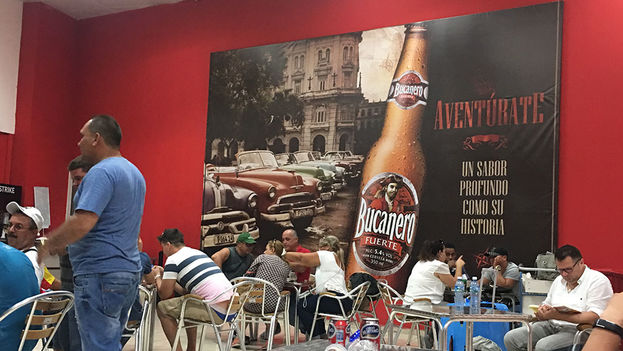
We can’t do magic. If there is no beer in the country, where are we going to get it from?” an ECASA employee asks rhetorically, speaking to this newspaper by phone from the central office. “We have tried to meet the demand with imported products, but the tourists want to drink a Cuban beer at the airport,” she says.
Hope arrived for the terminal employees when it was announced last August that French companies Bouygues and Paris Airports had won a concession to expand and manage the terminal.
“They haven’t pounded a single nail here,” protests the saleswoman at a handicrafts stand on the middle floor. Industry sources say that no feasibility studies have yet been done to start the works. “The French planners have not even arrived to evaluate the terminal,” says a senior Transport Ministry official adding that the project is waiting for support from the new French president.
One floor down crowd those waiting for the travelers who arrive in the country. “This shows a lack of respect,” says Manuel Delgado, 58, who complains that “there is no place to sit, the heat is unbearable and the cafeteria has no water” while waiting for the Air France flight returning his daughter, who has been living in Paris.
The bathrooms earn the worst of the opinions of those who wait. “They smell bad and although the service is free, the employees are asking for money, in a somewhat disguised way, but they ask for it,” says Yesenia, who came from Matanzas to meet a brother returning from Mexico.
In the women’s restroom a female worker holds the roll of paper for drying hands. “It’s not mandatory, but they look askance at you if you do not give them something,” says Yesenia. One of the female employees asked the customers to exchange for 25 centavo coins in Cuban pesos (CUP) “for a convertible peso.” Finally, a European-looking tourist agrees.
A few meters from the bathroom, located on the third floor, a young man tries to catch the wifi signal to surf the internet, a service only offered in the area after immigration and security controls. For every hour of navigation one must pay 1.50 in Cuban convertible pesos (CUC) but there is nowhere in the airport “today where they are selling recharge cards for the Nauta service,” he says frustrated.
There are also no hotels nearby for passengers in transit to other provinces. For two years the Ministry of Tourism (MINTUR) has planned to build five-star accommodation in the immediate vicinity of the airport, but the project has not yet materialized. The private sector, however, has taken the lead from the state and more and more private houses are renting to tourists in the vicinity of the area.
The problems of infrastructure and services do not end after approaching the exit doors from the flights. “I was traveling in first class and they gave me an invitation for the VIP area,” says José Mario, a Cuban who each month takes the Copa Airlines route to Panama working as a “mule.”
Numerous trips allow you to accumulate points that you can take advantage of, from time to time, to travel in more comfort. But the VIP area has not met their expectations. “They told me I had to wait for other customers to finish eating, because there were not enough dishes,” he remembers with annoyance after his failed attempt serve himself some nuts and cheese from the available buffet.
Jose Mario admits, at least, that the taxi service has improved. More than a year ago a fixed rate was established from the airport to different points of the city. “Before the driver decided the price, but now I know that I must pay 25 CUC from here to my house, not a peso more.”
The experience on arrival, on the other hand, does not get much praise. It varies according to the schedule, the flight and the amount of luggage. “Sometimes I have spent less than an hour waiting for my bags, but other times I have spent up to four in front of the luggage belt,” complains the traveler.
Employees agree that the waiting time after the landing fluctuates. “At night, when large flights arrive from Europe, such as Iberia, Air France or Aeroflot everything slows down,” says one of the doctors waiting for the national passengers to fill out an epidemiological form.
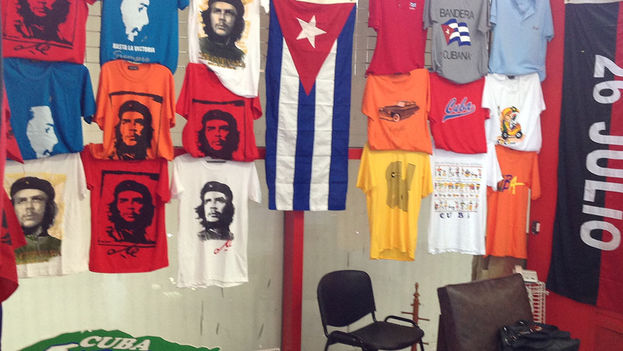
The pilots themselves have had to explain to the passengers about departure delays because of not having “enough vehicles to bring the luggage to the plane”.
Added to this is the strict customs control over luggage, whose thoroughness is not only designed to prevent crime but to control the bringing of technological devices into the country (such as DVDs, NanoSations, hard disks or laptops) or large quantities of commonly used products. The most “meticulously” checked flights are those from the US, Mexico, Panama, Haiti, Guyana, Trinidad and Tobago and other regular routes for the “mules.”
In the area before passing through immigration, employees are wandering around with posters bearing the names of some travelers. Some approach families with children or newcomers who look like Cubans living abroad. “For 40 dollars I can pass you without problems from customs,” whispers a worker to a couple with two children.
For a certain fee employees can avoid passing through the search or paying for excess imported luggage, a relief for many Cubans living abroad and arriving loaded with gifts. For each kilo of luggage that exceeds the limit of 50 kilos, there is a fee that must be paid in CUC, and the fees also depend on the type of objects transported. For residents on the island is also very advantageous, since they can only pay in CUP for their first annual importing of goods.
Jose Mario often resorts to this illegal service. “What I am going to do?” he justifies himself. “I pay to get myself out of this airport as soon as possible, because it’s unbearable between the heat and the bad conditions.”

